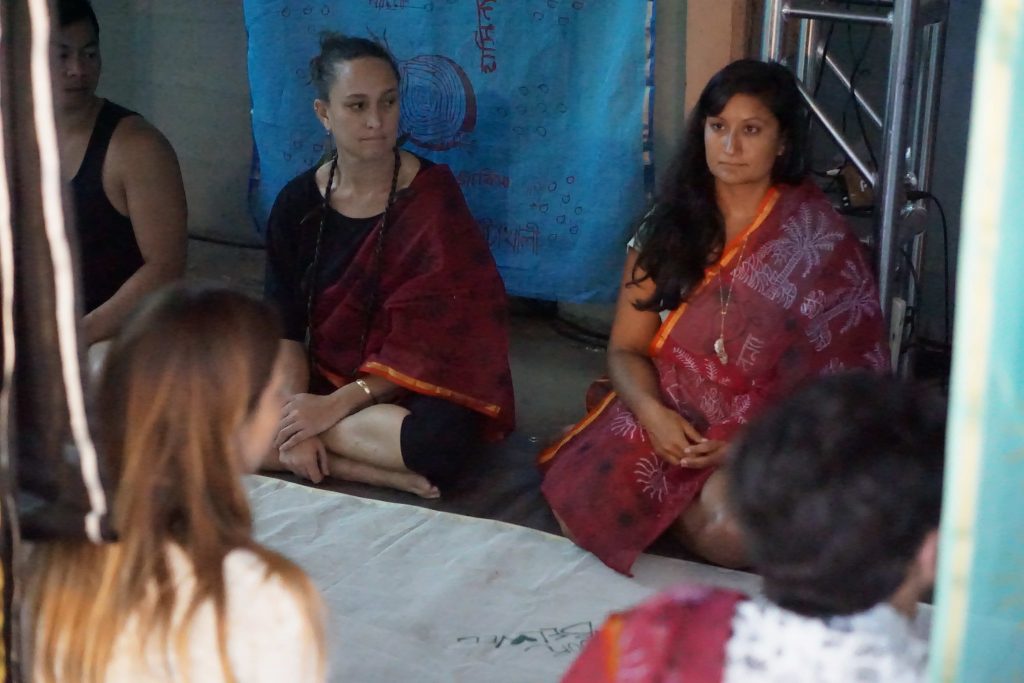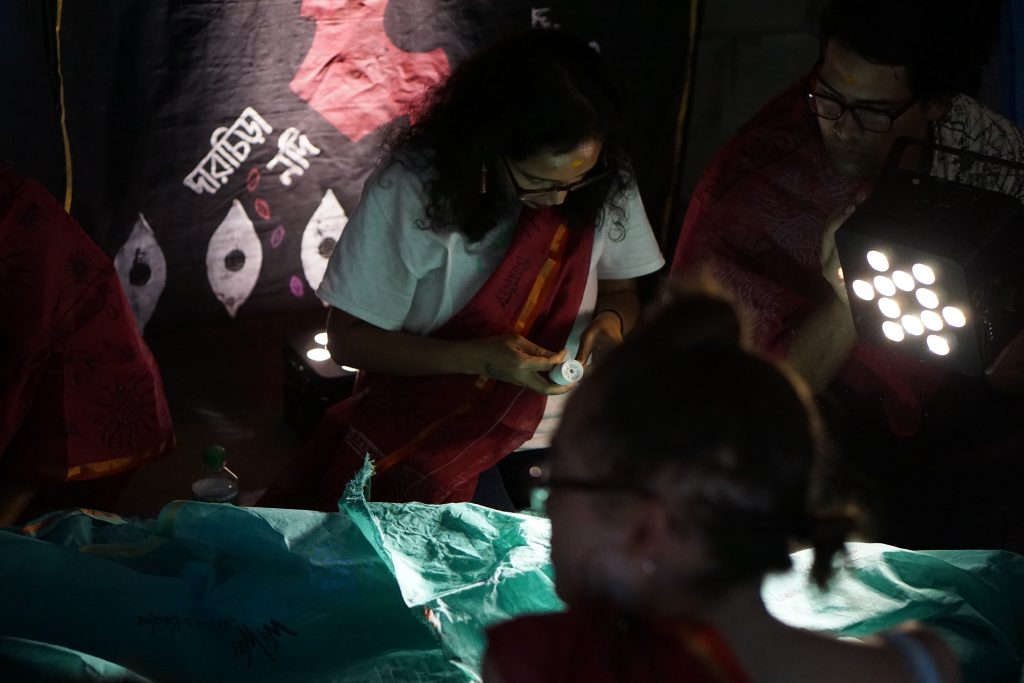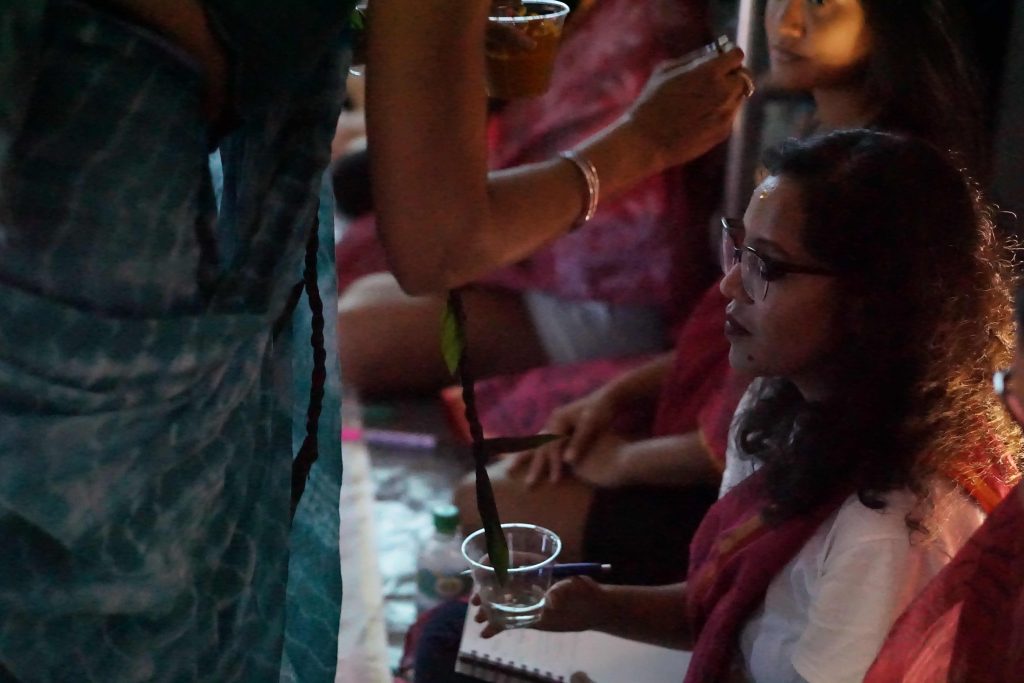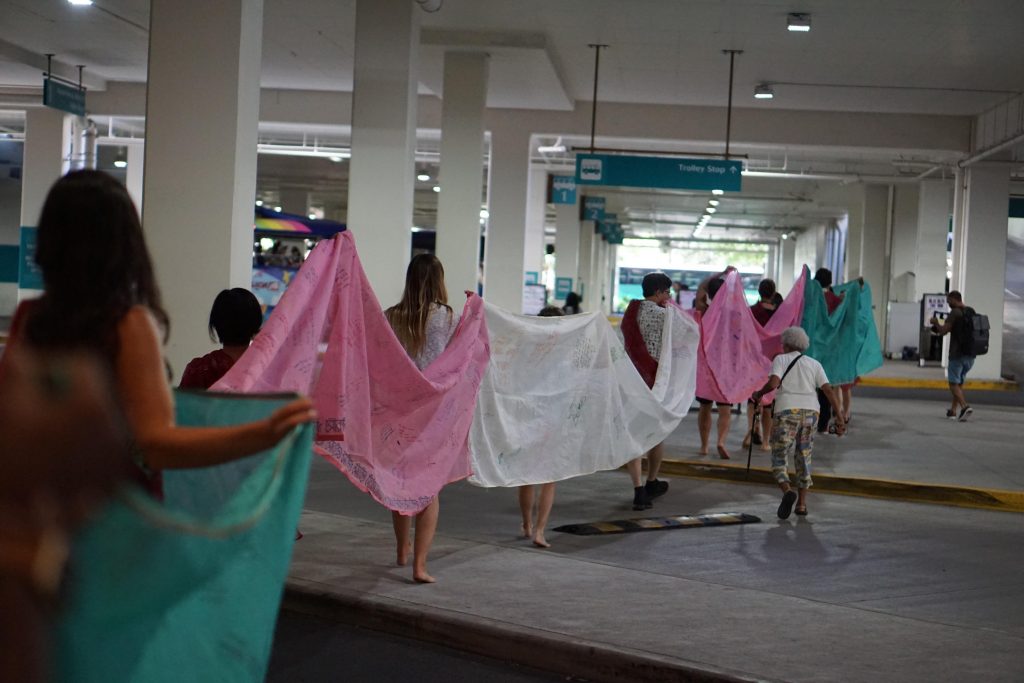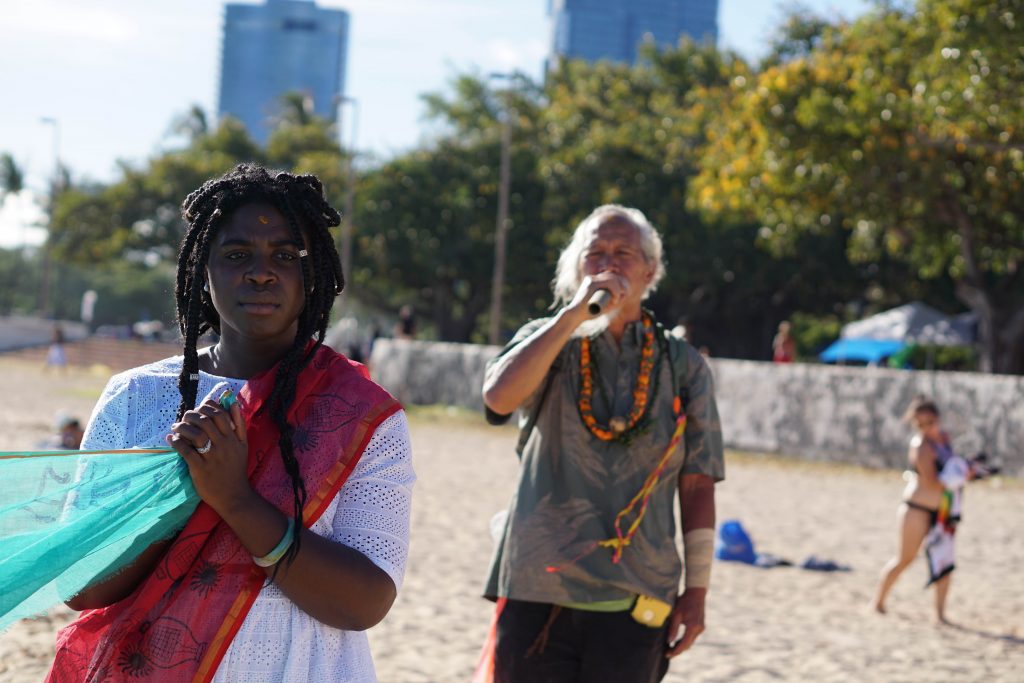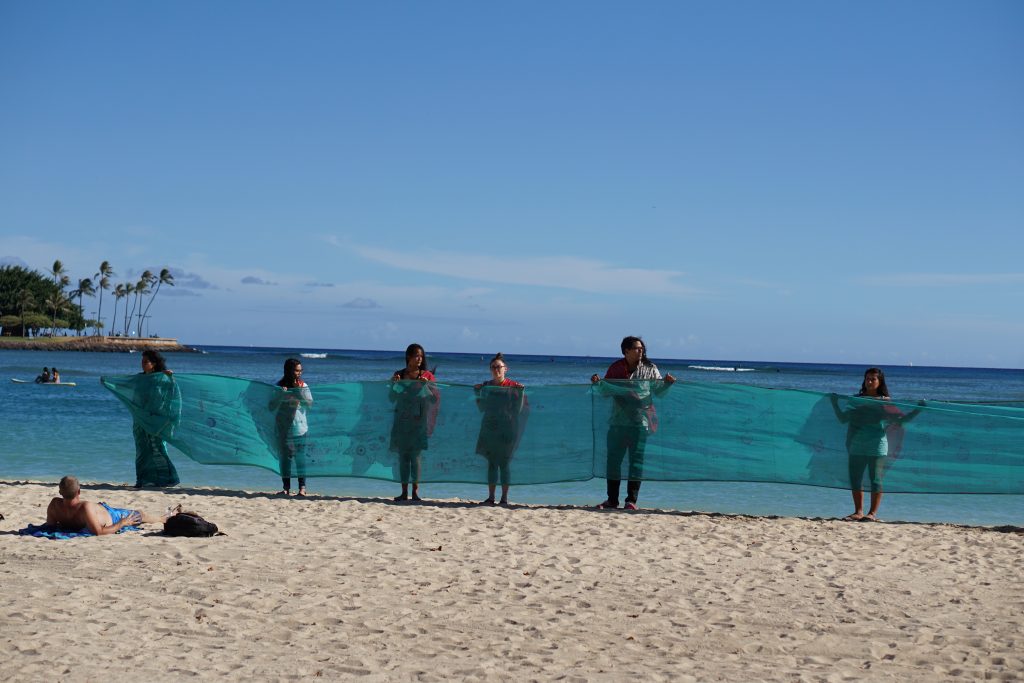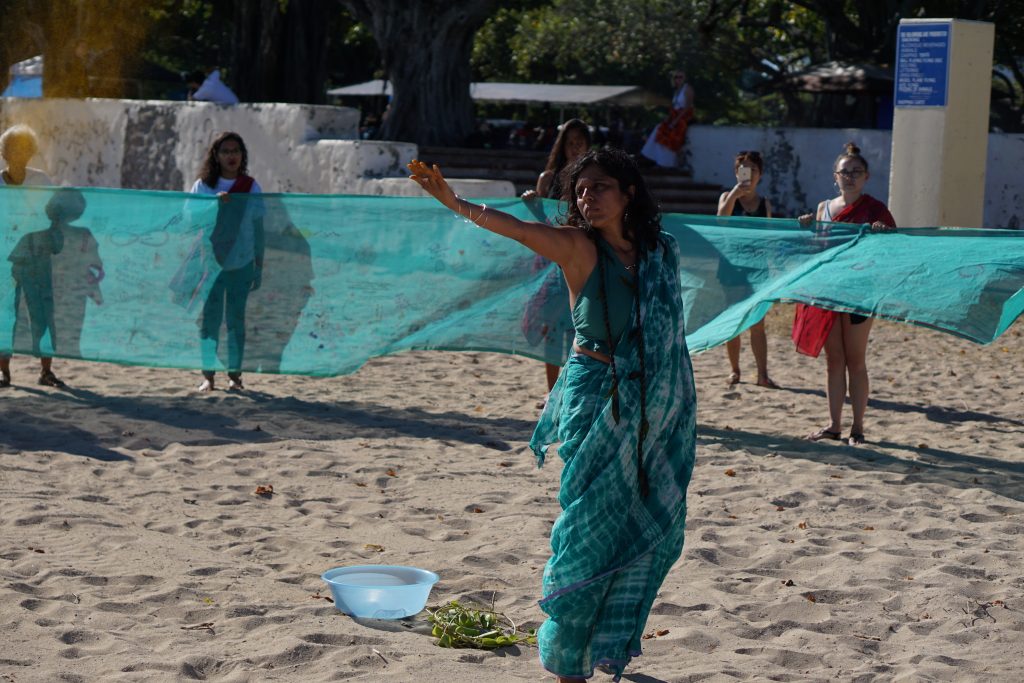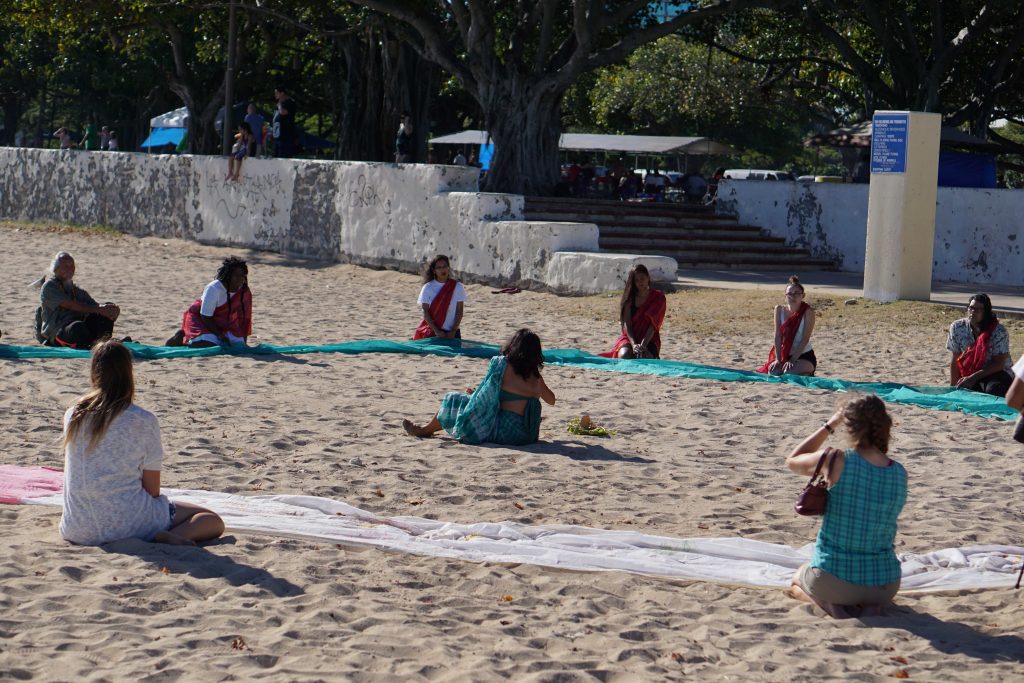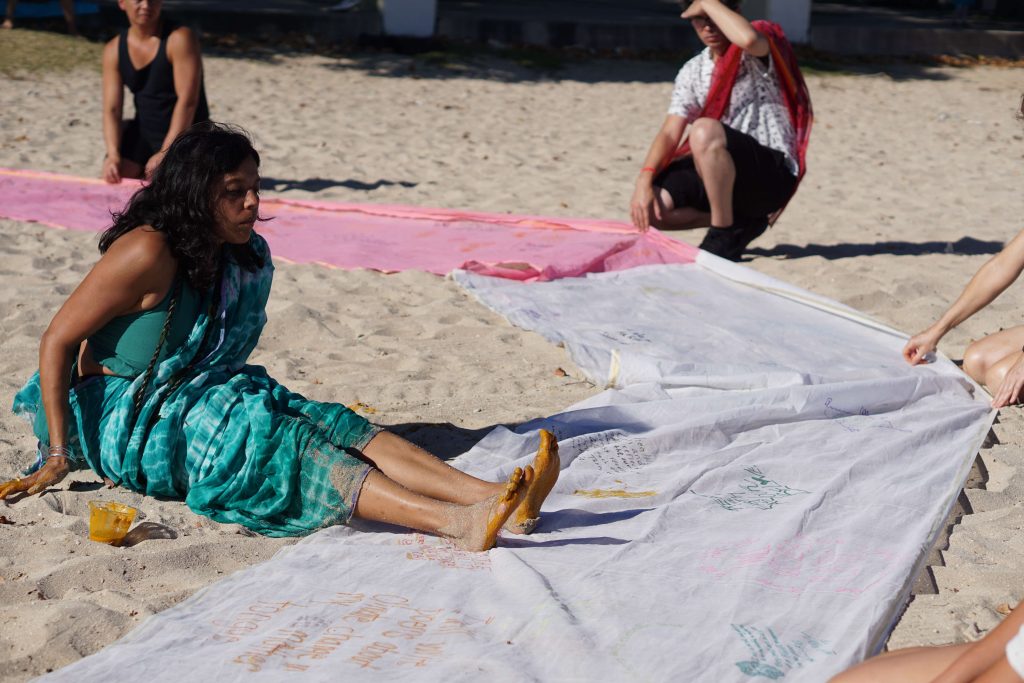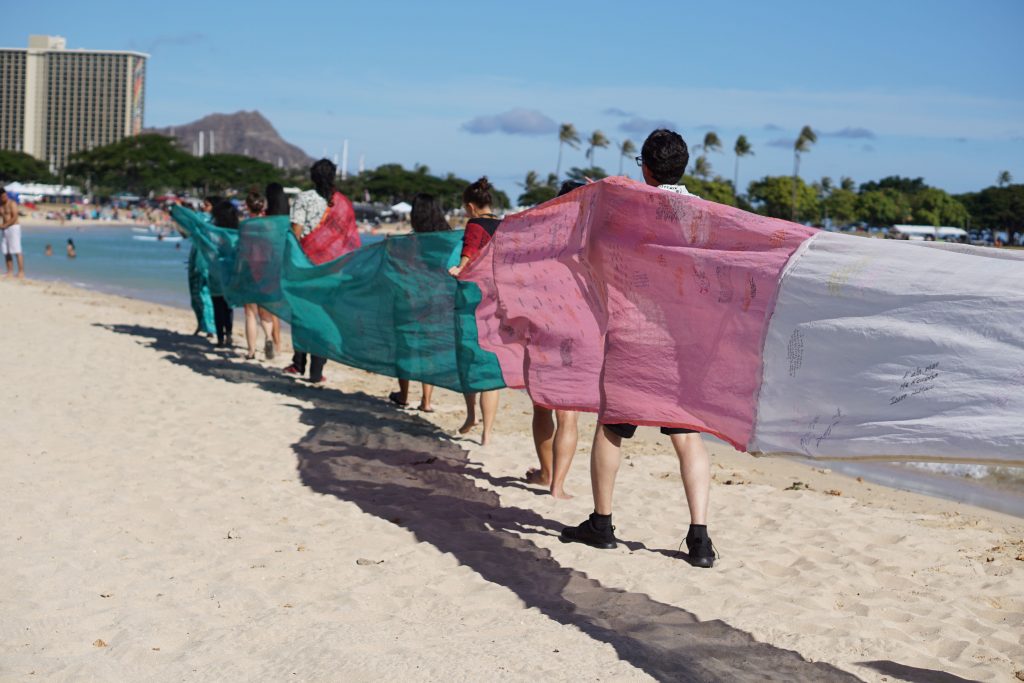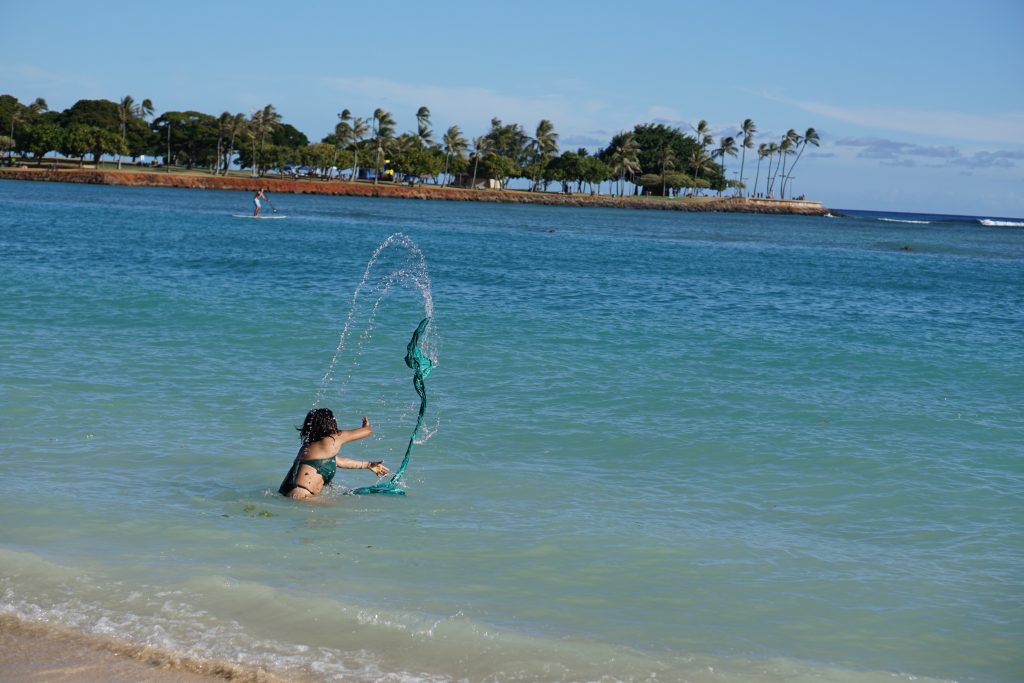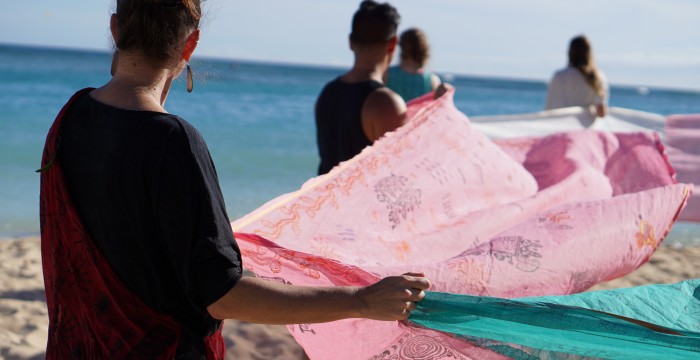
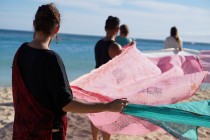
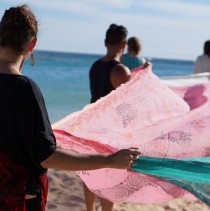
Honolulu Performance
Location: Ala Moana Center, former Foodland site, Honolulu, Hawaii, and then out to the Pacific Ocean
Duration: 1.5 hours.
PERFORMERS: Hina Kneubuhl, Calvin Hoe (music with pre-European Hawaiian instruments), Anjoli Roy, Nanci Amaka, Nafisa Isa, Nicole Dowd, Isa Borgeson, No’u Revilla, Maika’i Tubbs, William Nu’utupu, Mareva Minerbi, Courney Van Gorden, Michael Yano, Jose, Julia, and more.
Many members of the public spontaneously joined the performance.
STATEMENT: In RECLAIM, Monica Jahan Bose collaborates with women from her ancestral island village in Bangladesh as well as Hawaiian language activist Hina Kneubuhl and other residents of Hawai’i to create a transborder physical and emotional link between coastal peoples. Saris with writing from Bangladesh and Hawai’i establish a people to people agreement on climate, which moves from the former Foodland site in the Ala Moana Center to the beach and rising sea. RECLAIM uses words and culture to reclaim heritage, language, and our connection to the earth. By making emotional connections across communities, the project seeks to create solidarity in addressing climate change. Bengali and Hawaiian rituals with water, turmeric, and other materials symbolize renewal, resistance, and resilience.
REFLECTIONS: We silently gathered together on the floor, inside a house of saris from Bangladesh, to write our carbon reduction pledges on a pure white sari, sew the sari together with other climate pledge saris, and carry the saris outside to the shade of the Banyan trees and then to the beach to the point of Ae Kai, the meeting of land and sea. Words in Bengali (Bangla) and Hawaiian (Olelo Hawai’i) were sung and recited to empower and inspire us to tackle climate change. A Hawaiian bamboo horn was played to announce our action and to call out our ancestors. We drank water infused with written words in turmeric (holood, olena) pledging to stop using fossil fuels (referring to a Muslim ritual), got anointed with turmeric (a Bengali ritual of renewal, detoxification, and cleansing), wrote and painted with turmeric on the sari, and offered turmeric to the wind and the rising sea. We floated a sari in the sea, and floated the beach morning glory vine (pohuehue) on the sari and released it in the sea. Pohuehue is whipped on the sea by surfers in Hawai’i to bring on the waves. We floated the pohuehue gently to tame the ocean, reduce sea level rise. We whipped the ocean with the sari, beating back the rising sea. We bailed water out of the ocean. We came back inside and were wrapped in the embrace of the sari.
This performance was planned over a three month period with the help of numerous people via phone, email, skype, Facebook, and in person. Many thanks to everyone who joined, shared ideas about Hawaiian language, culture, and rituals, and helped spread the word to make this complex performance possible. Sari scarves were made by the women of Katakhali with woodblocks about climate change and renewable energy. Special thanks to Hina Kneubuhl for helping me find morning glory vine on the beach, reciting her Hawaiian poetry about climate change, and brainstorming with me on all of it, to Nancy Amaka for timekeeping and assisting in so many ways, and to Calvin Hoe for making special instruments for the performance and calling out our ancestors as we came outside.
Documentation and photo credit: Andrea Marshall
Copyright Monica Jahan Bose 2017.

